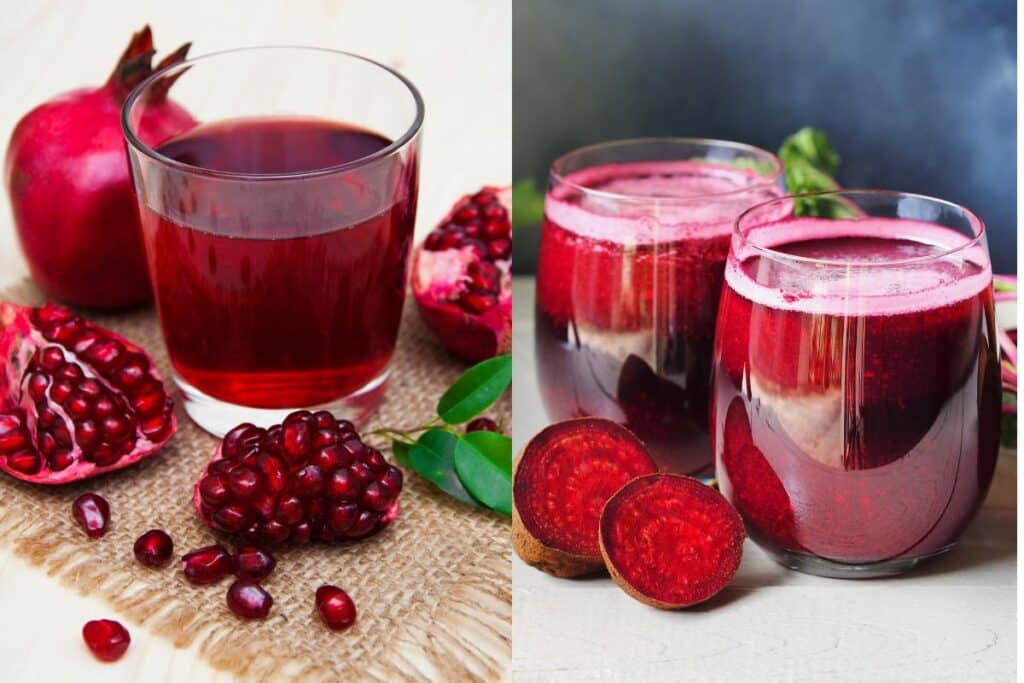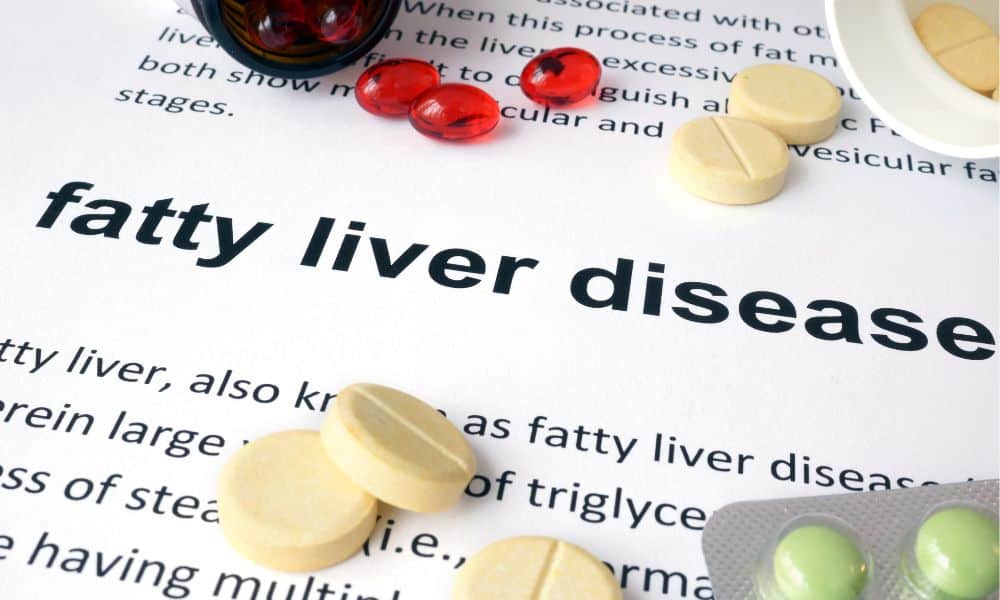Are you wondering which to choose, pomegranate or beet juice, to improve your overall health and fitness as you age? When it comes to fueling your fitness journey and optimizing your nutritional intake, your choices can profoundly impact your results. Two standout options in natural health elixirs are pomegranate juice and beet juice. These vibrant liquids offer various benefits, each with its unique nutritional profile, deciding between them an irresistible challenge for health-conscious individuals and fitness enthusiasts alike.
Pomegranate Juice: The Antioxidant Marvel
Pomegranate juice has earned its reputation as a potent antioxidant-rich beverage that can significantly contribute to your overall health and fitness goals. Bursting with flavor and vibrancy, pomegranate juice boasts a range of benefits:
- Antioxidant Power: Pomegranates contain antioxidants, notably polyphenols like punicalagin and anthocyanins. These compounds combat oxidative stress, reduce inflammation, and protect cells from damage, aiding muscle recovery and overall well-being.
- Heart Health: Studies suggest that pomegranate juice can support cardiovascular health by improving cholesterol levels, reducing blood pressure, and enhancing blood vessel function. A healthy heart is crucial for sustaining intense workouts and maintaining stamina.
- Muscle Recovery: Pomegranate juice’s anti-inflammatory properties can help reduce muscle soreness and aid in recovery after strenuous exercise, allowing you to bounce back faster.
- Nitric Oxide Boost: Pomegranate juice has been linked to increased nitric oxide production, which dilates blood vessels and improves blood flow. This can enhance oxygen and nutrient delivery to muscles during workouts, potentially boosting performance.
- Hydration and Electrolytes: Pomegranate juice, a natural source of electrolytes and hydration, can be a refreshing choice post-workout to replenish lost fluids and essential minerals.
Nutritional Profile
Pomegranate juice is celebrated for its rich flavor and an impressive array of health-promoting compounds. Here’s a breakdown of the typical nutritional profile of 8 fluid ounces (240 ml) of unsweetened, commercially available pomegranate juice:
Calories: Approximately 120 kcal
Carbohydrates: Around 30 grams
- Dietary Fiber: Roughly 0.5 grams
- Sugars: Approximately 24 grams
Vitamins:
- Vitamin C: Pomegranate juice is a robust source of vitamin C, with about 25% of the recommended daily intake (RDI) in an 8-ounce serving.
- Vitamin K: You’ll find a notable amount of vitamin K, contributing to around 10% of the RDI.
Minerals:
- Potassium: Pomegranate juice is relatively high in potassium, containing around 300 mg per 8-ounce serving.
- Calcium: A small amount contributes about 5% of the RDI.
- Other Minerals: Trace magnesium, phosphorus, and iron amounts are also present.
Antioxidants and Bioactive Compounds:
- Polyphenols: Pomegranate juice contains polyphenol compounds, including punicalagin and anthocyanins. These antioxidants have been linked to numerous health benefits, including reducing oxidative stress and inflammation.
- Ellagic Acid: This compound is known for its potential cancer-fighting properties.
- Flavonoids: Pomegranate juice contains flavonoids like quercetin and kaempferol, which have antioxidant and anti-inflammatory effects.
- Tannins: Pomegranate juice is rich in tannins, contributing to its astringent taste.
Other Compounds:
- Nitrate: Pomegranate juice contains nitrates, which can contribute to its potential cardiovascular benefits by aiding in nitric oxide production and blood vessel dilation.
- Punicic Acid: This type of conjugated linoleic acid (CLA) is found in pomegranate juice which has shown potential health benefits in animal studies.
Beet Juice: The Nitric Oxide Dynamo
Beet juice, with its deep red hue, is a nutritional powerhouse renowned for boosting nitric oxide levels in the body. Nitric oxide is a vasodilator that widens blood vessels and improves blood flow. Here are some reasons why fitness enthusiasts favor beet juice:
- Nitric Oxide Production: The high content of nitrates in beet juice is converted into nitric oxide in the body. Nitric oxide helps relax blood vessels, increasing oxygen and nutrient delivery to muscles, potentially enhancing endurance and performance.
- Improved Exercise Efficiency: Studies suggest that beet juice consumption may improve exercise efficiency by reducing the oxygen cost of exercise, allowing you to sustain higher-intensity workouts for more extended periods.
- Stamina and Endurance: Beet juice’s nitric oxide-boosting effects can enhance oxygen utilization during aerobic activities, supporting stamina and endurance levels, making it a go-to choice for endurance athletes.
- Reduced Fatigue: Beet juice’s ability to increase blood flow to muscles can help reduce muscle fatigue and enhance recovery between workouts.
Nutritional Profile
Beet juice is gaining popularity for its potential health benefits, especially among athletes and fitness enthusiasts. Here’s a general overview of the nutritional profile of 8 fluid ounces (240 ml) of unsweetened, commercially available beet juice:
Calories: Approximately 70 kcal
Carbohydrates: Around 16 grams
- Dietary Fiber: Roughly 1-2 grams
- Sugars: Approximately 13-15 grams
Vitamins:
- Folate (Vitamin B9): Beet juice is a good source of folate, providing around 20% of the recommended daily intake (RDI).
- Vitamin C: Contains a moderate amount, contributing about 10% of the RDI.
- Vitamin B6: A small amount contributes to around 5% of the RDI.
Minerals:
- Potassium: Beet juice is relatively high in potassium, containing approximately 300-350 mg per 8-ounce serving.
- Magnesium: A small amount contributes around 6% of the RDI.
- Iron: Offers a minor amount, contributing about 3-4% of the RDI.
Antioxidants and Bioactive Compounds:
- Betaine: Beet juice is rich in betaine, a compound associated with potential health benefits, including improved cardiovascular health and liver function.
- Nitrates: Beets are notably high in nitrates, converted to nitric oxide in the body. Nitric oxide helps relax blood vessels, improving blood flow and enhancing exercise performance.
- Antioxidants: Beet juice contains various antioxidants, including betalains, which give beets their deep red color. These compounds have been linked to reducing oxidative stress and inflammation.
Other Compounds:
- Betacyanins: These are the pigments responsible for the red color of beets. They have shown potential antioxidant and anti-inflammatory properties.
- Fiber: While not extremely high, beet juice does contain some dietary fiber, contributing to digestive health.
Choosing the Right Fit for You:
While pomegranate and beet juice offer impressive health and fitness benefits, the choice ultimately depends on your individual goals, preferences, and dietary needs. Pomegranate juice is renowned for its broad spectrum of antioxidants and heart-healthy properties, making it an excellent choice for overall well-being. On the other hand, beet juice’s nitric oxide-boosting effects are particularly advantageous for athletes seeking enhanced endurance and improved blood flow during intense workouts.
Incorporating Them Into Your Routine:
- Pre-Workout: Consider sipping beet juice before a workout to enhance endurance and boost nitric oxide levels.
- Post-Workout: Enjoy pomegranate juice to aid muscle recovery and provide a refreshing source of hydration.
- Mix and Match: Get creative by blending the two juices for a powerful combination of antioxidants, nitrates, and vitamins.
- Moderation: Remember that both juices contain natural sugars, so moderation is key, especially if you’re mindful of your caloric intake.
Conclusion
In conclusion, pomegranate juice and beet juice are both remarkable additions to a fitness-oriented diet, offering distinct benefits that can complement your training efforts. Whether you’re seeking antioxidant protection, enhanced endurance, or improved blood flow, these vibrant juices can be valuable allies in your quest for optimal health and fitness.
If you or someone you know is looking to improve your health, share this article on Facebook or Twitter so that others can learn more about self-care.




